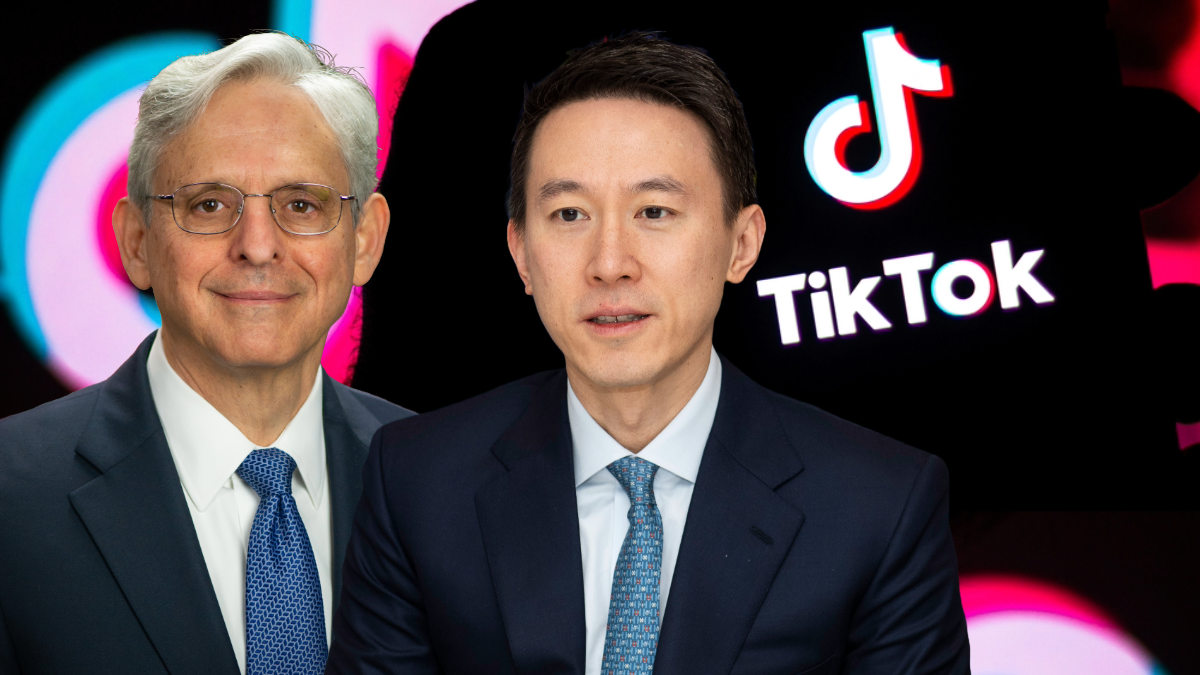Key Questions in the US Government’s Case Against TikTok
Anupam Chander, Gautam Hans / Sep 14, 2024Anupam Chander is the Scott K. Ginsburg Professor of Law and Technology at Georgetown Law; Gautam Hans is a Clinical Professor of Law and founding Director of the Civil Rights and Civil Liberties Clinic at Cornell University. Along with other scholars, they filed an amicus brief in this case.
The clock is ticking for TikTok: a law passed in April requires the company to either be sold or banned in the US by January 19, 2025—the day before the inauguration of the next President of the United States. TikTok and its users have challenged the law, arguing that it violates their First Amendment rights, among other claims. The DC Circuit Court of Appeals will weigh the challengers’ arguments, as well as the government’s defense, at a hearing this Monday, September 16. TikTok’s American future lies in the hands of the courts. So on inauguration day 2025, TikTok will either churn out videos from inaugural balls, or turn into a pumpkin.
US fans of the app might find hope in the fact that TikTok has survived previous efforts to ban it, from the Trump Administration’s executive action in 2020 to a Montana state law in 2023, both tossed out in court. One might assume those victories would make the challenge to the most recent law more straightforward. But because of the explicit Congressional authorization and the weight given to national security arguments, the company likely has a tougher task in the current case.
However, two key sentences from the government’s briefing to the DC Circuit leaves the government’s national security argument in doubt. First, the US government included in its briefing an admission from its intelligence services that they have “no information” that the Chinese government has manipulated information on TikTok. This is the first time, as far as we are aware, that the US government has conceded that it has no evidence that the Chinese government has manipulated the TikTok app’s content in the US. Second, the US government claims that TikTok’s recommendation algorithm is still based in China and that “ByteDance has never agreed to move the recommendation algorithm for TikTok out of China.”
The first statement, made by the Assistant Director of National Intelligence under penalty of perjury, contradicts many of the assertions by members of Congress who sponsored or supported the TikTok law. Many members of Congress were convinced that China was already manipulating content feeds; for example, effectuating its political agenda by highlighting pro-Palestinian content. In November 2023, then-Congressman Mike Gallagher (R-WI), who sponsored the law, accused TikTok of brainwashing young people against the United States and its allies at the behest of the Chinese government. (Shortly after the TikTok law was signed, Congressman Gallagher resigned from Congress, and now works for Palantir, a CIA-backed data analytics company.)
Given this admission that it has no evidence that China has actually done this, the government now falls back to the suggestion that the Chinese government could manipulate TikTok at some point in the future. This is where TikTok’s proposed National Security Agreement with the US government comes in. Under this agreement, part of which TikTok has put into place already under its “Project Texas” data protection plan, TikTok has put both the personal data of Americans and its recommendation algorithm on computer servers owned by Oracle, and managed by a new American TikTok entity led by US-government approved directors. TikTok argues that this insulates both the data and the algorithm from Chinese governmental manipulation.
The second statement by the US government that the recommendation algorithm actually “resides within China” seems to contradict the heart of TikTok’s Project Texas. TikTok replies that the government is “plainly wrong.” We can see for ourselves as the litigation has revealed a draft of the 100-page National Security Agreement that ByteDance negotiated with the US government, the agreement that undergirds TikTok’s Project Texas.
The agreement requires that “the Recommendation Engine shall be contained and deployed from within the TikTok US Platform,” which must be run from Oracle’s secure cloud infrastructure. It must also be “trained exclusively within [Oracle’s] secure cloud infrastructure” in the United States. US personal data must be held “exclusively in the United States, with no transmittal outside of the United States except as otherwise provided in this Agreement.”
The government argues that, even with Project Texas, TikTok can still be manipulated by the Chinese government. But foreign manipulation and espionage cannot be entirely ruled out from any of the platforms we use. When Telegram’s CEO was recently arrested in France, the Russian government sought consular access to him, a privilege generally exercised for a country’s own nationals. Earlier this month, US Attorney General Merrick Garland accused Russian state broadcaster RT of paying a Tennessee firm $10 million to pay social media influencers to advance Russian propaganda on a variety of US-based platforms.
The US government argues that TikTok has a simple solution--sell itself to a buyer from the US or acceptable country. But this faces at least three significant challenges. First, Chinese export controls likely prohibit the sale of algorithm powering TikTok, so TikTok US would likely have to be sold without its magic algorithm, a bit like selling Coke without its secret formula. Some suggest that blocking such a sale would only confirm that China secretly manipulates the algorithm, but US export prohibitions on highly capable AI systems hardly prove that the US government manipulates American AI systems. Second, TikTok US would have to be sold at lightning speed and, likely, a fire sale price. Third, it would be difficult to manage TikTok Global when it faced a competitor in TikTok US. Because the TikTok law bars any ongoing operational relations between TikTok US and TikTok Global, it is unclear how one would manage two different TikToks with two different owners, community guidelines, trust and safety teams, and sets of content. TikTok US would be left an isolated island, reducing its value to any purchaser, but also leading inevitably to confusion for users across the world.
On Monday, we will see the government’s argument against TikTok tested in court. Given the two statements cited above, the judges will undoubtedly press the government hard on its national security claims justifying this drastic action against a popular vehicle for American speech.
Related Reading
Authors


